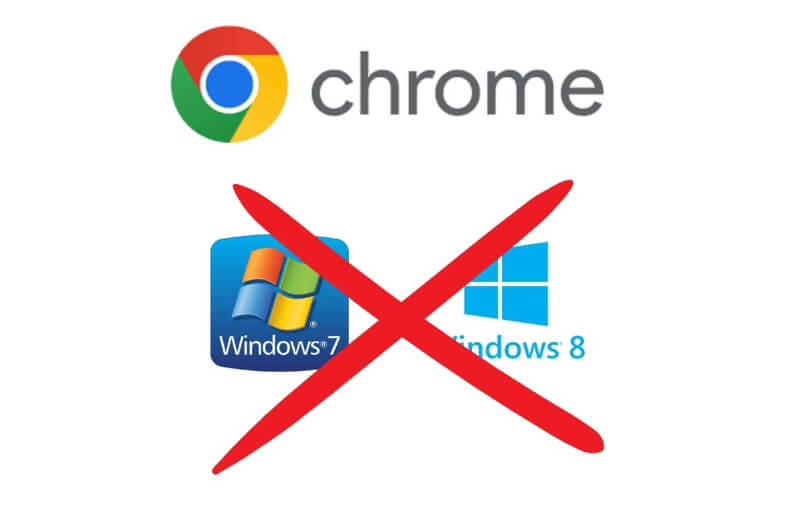Tech giant Google’s web browser Chrome will cease to support computers using versions of windows older than Windows 10 from 15th January 2023.
Google has in the past two years been considering this action, with its support team announcing in October 2022 that the new version of the web browser, Chrome 110, is designed to run on Windows 10 or later.
This means computers operating on Windows 7 and 8.1 will no longer have access to Chrome. So, computer users who desire to keep using Google Chrome as they have always done will as a matter of necessity, update Windows. The new version is scheduled to be launched on 7th February this year.
The plan initially was for Google to make this move for Chrome in July 2021, but it was delayed first to January 2022.
According to Google, “After assessing the current situation, and based on feedback from our valued enterprise customers, Chrome is extending our support for Windows 7 until at least January 15, 2022. That’s a 6-month extension from our previously communicated date of July 15, 2021. We’ll continue to evaluate the conditions our enterprise customers are facing and communicate any additional changes in the future.”
Read also: Google Chrome now has memory and energy saving features
The tech giant later extended the date from 2021 to this year in consideration of businesses gradually transitioning from Windows older than Windows 10.
“In order to protect enterprises that are continuing their transition away from Windows 7, Chrome is extending support for Windows 7 through January 15, 2023, for critical security and stability updates,” Google said.
Google Begins Warning Prompts
Meanwhile, the recently released Google Chrome 108 is now displaying warning prompts about the upcoming end of support on Windows 7 and 8.1, stating that “To get future Google Chrome updates, you’ll need Windows 10 or later. This computer is using Windows 7.”
In other words, browsing the modern internet using an unsupported operating system and browser is risky, so companies don’t want to be held accountable for anything that happens.
Just like most programs whose updates won’t function on older operating systems, you can use the older versions of Chrome; you won’t get the newer things Google is working on. And you won’t have the latest security for your browser either. But don’t worry if you are comfortable with the current Google Chrome operations and not interested in the upgrades, enjoy. Just know that your online security is also at stake when using older versions that no longer receive security updates.
Chrome web browser has a market share of about a whopping 65%, clearly leading other browsers. Safari is in second place with approximately 18%, while Microsoft Edge is in third place 4.32%. Microsoft Edge uses the Chrome rendering engine with enhancements from Microsoft.
At present, Windows 7 is still operating on at least 10% of all Windows systems worldwide, while Windows 8.1 is just 2.7%, according to Statcounter GlobalStats.
Google Chrome will soon allow fingerprint authentication for incognito tabs
Why Windows 7 /8.1 PC Users Need To Update By 10th January 2023
Google Chrome’s plans come on the heels of Microsoft’s decision to end security updates for Windows 7 and Windows 8.1. Microsoft stated that updates for these outdated windows will end on 10th January 2023, which is right around the corner.
Microsoft said: “Change can be difficult, but we’re here to help you take the next steps. After January 10, 2023, Microsoft will no longer provide security updates or technical support for Windows 8.1. You might be able to upgrade your Windows 8.1 device to a newer version of Windows, but we recommend moving to a new PC that can run Windows 11 as the best option.”
This is an opportunity for many PC users to quickly update their windows to Windows 10 or a later version, as 10th January is just five days away from Chrome’s expected date to stop supporting the outdated Windows versions.




